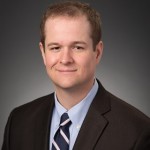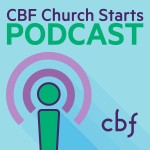By Aaron D. Weaver

April 22 will mark the 48th annual celebration of Earth Day — a day first set aside in 1970 to encourage support for environmental protection with events held in more than 190 countries around the world.
That first celebration, now nearly a half-century ago, put environmental issues front and center in the U.S. society and politics. With more than 20 million Americans participating in this awareness and advocacy effort, the first-ever Earth Day displayed the grassroots popularity of concern for our planet.
The months immediately following Earth Day 1970 witnessed a surge of bipartisan environmental legislation and initiatives. New laws crafted to protect nature and the public from industrial hazards included the Endangered Species Conservation Act, Clean Air Act, Water Quality Improvement Act and the National Environmental Policy Act, which established the Environmental Protection Agency.
For members of my faith tradition (Baptists), Earth Day has never been a widely-celebrated day, sandwiched somewhere between April 1 and April 15 on the popularity front. Yet, there have been several influential individual and institutional voices of dissent within the Baptist ranks who charted a different course when it came to encouraging concern of God’s creation.
In 1970, Henlee Barnette, a pioneer Baptist ethicist, led a group of his students at Southern Baptist Theological Seminary in Louisville, Kentucky, to participate in the historic Earth Day celebration.
“We confess that we have not been good housekeepers of this lovely dwelling place,” Barnette prayed during the Earth Day chapel service. “We have failed in our stewardship for we have fouled the air, poisoned the land and the lakes, and polluted the streams. …May this Earth Day be the beginning of a sustained and concerted effort on the part of all of us to create a cleaner world so that future generations will enjoy the beauty of the Earth.”
Barnette would go on to help form an “Ecoclub” for his seminary students and teach an ethics course on the ecological crisis — the first of its kind at any Baptist seminary. He also penned an important book titled The Church and the Ecological Crisis in 1972 with Eerdmans Publishing, which laid out an accessible and concise eco-theology for laity and academic audiences rooted in the belief that the covenant between God and humanity extended to the rest of creation. “To mistreat the land is to break covenant with God and may cause him to withdraw his presence and providence,” he wrote.
Agape love was central to Barnette’s eco-theology. This agape love was a love-in-action which demanded personal and social advocacy and activism, emphasizing the crucial role of government alongside individuals and communities in addressing environmental concerns. “For all the value in individual ecotactics, political action is necessary if the ecological problem is ever to be solved,” according to Barnette.
The late Baptist ethicist called on churches to begin environmental education programs, host seminars and discussion groups, participate in national and local environmental organizations and take part in community projects. He encouraged his thousands of ministry students and pressed churches to redefine their theology to “see love in terms of willing the welfare of all God’s creatures and things” and embrace an understanding of stewardship that “transcends giving a tithe faithfully and sees a responsibility to the whole Earth.”
At a time when caring for God’s creation is of the utmost importance and at a time when the head of the EPA — the federal agency created in 1970 to protect the environment — is led by a fellow Baptist who dangerously rejects the established science of climate change, I’m thankful for pioneering voices like Henlee Barnette who have offered a model for faith-based environmental advocacy.
May we hear his call and follow his lead to begin a “sustained and concerted effort to create a cleaner world” for the sake of our neighbors and future generations.
Dr. Aaron D. Weaver serves as communications director for the Cooperative Baptist Fellowship. He is a member of the Creation Care Commission of the Baptist World Alliance.











